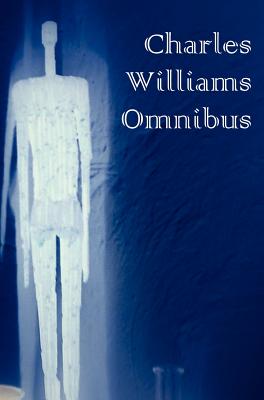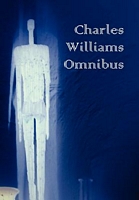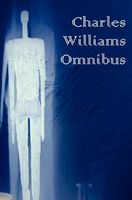- Welcome to FictionDB, Guest
- | My Account
- | Help

Charles Williams Omnibus - War in Heaven, Many Dimensions, The Place of the Lion, Shadows of Ecstasy, The Greater Trumps, Descen — Charles Williams

This book is an omnibus edition containing the seven novels that Charles Williams wrote as well as a short story that he wrote for the London Mercury: War in Heaven (1930) - The Holy Grail is discovered in a small country parish and becomes both a sacramental object to protect or a cup of power to exploit. Many Dimensions (1931) - The Stone of Suleiman is illegally acquired from its Islamic guardian in Baghdad and taken to England, it is discovered the stone allows its possessor to transcend the barriers of space and time. The Place of the Lion (1931) - Platonic archetypes begin to appear in an English market town, wreaking havoc and unveiling the spiritual strengths and flaws of the townspeople. Shadows of Ecstasy (1931) - A man discovers that by focusing his energies inward he can extend his life almost indefinitely. He undertakes an experiment using to die and resurrect his own body in order to attain immortality. The Greater Trumps (1932) - The original Tarot is used to unlock immense power, allowing those who possess it to see across space and time, create matter, and create powerful natural storms. Descent into Hell (1937) - An academic fetishizes a woman to the extent that his perversion takes the form of a female demon. The cycle of sin brings about the necessity for redemptive acts. All Hallows' Eve (1945) - Explores the meaning of suffering and empathy by removing the barrier between the living and the dead through both black magic and divine love. Et in Sempiternum Pereant (1935) - In this short story a retired Lord Chief Justice is on a walk in the countryside when he enters a burning house and encounters a troubled spirit on its way to Hell. This is the only tale of this kind that Williams wrote - sketchy in detail but terrifying through implication. Williams was admired by his contemporaries including T. S. Eliot and W. H. Auden, his especially by C. S. Lewis, whose novel That Hideous Strength is considered to be entirely inspired by Williams's work. When he moved to Oxford he participated regularly in Lewis's literary society known as the Inklings. This enabled Williams to read and improve his final published novel, All Hallows' Eve, as well as to hear J. R. R. Tolkien read some of his early drafts of The Lord of the Rings aloud to the group.
Genres
Sub-Genres
Click on any of the links above to see more books like this one.

